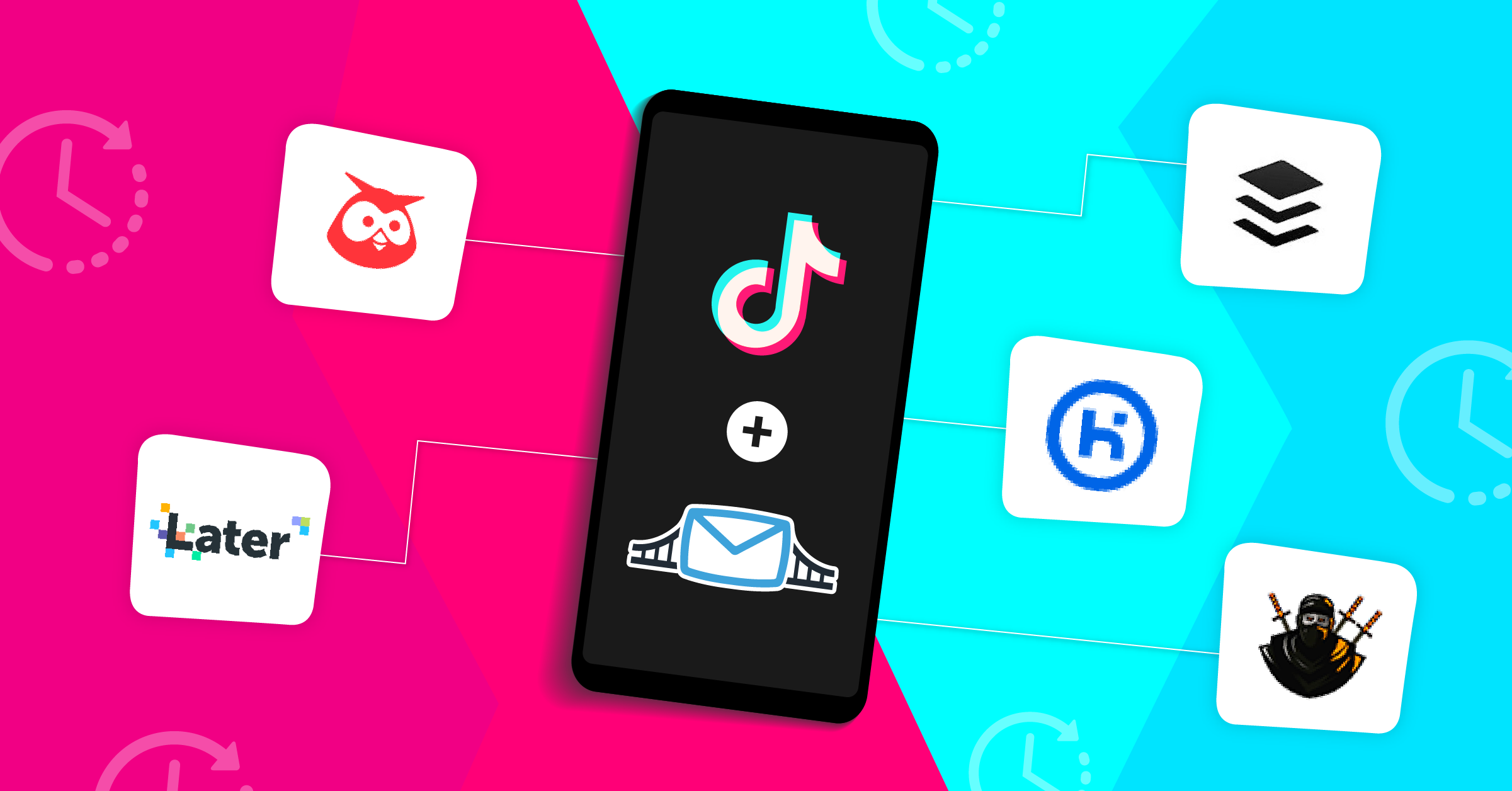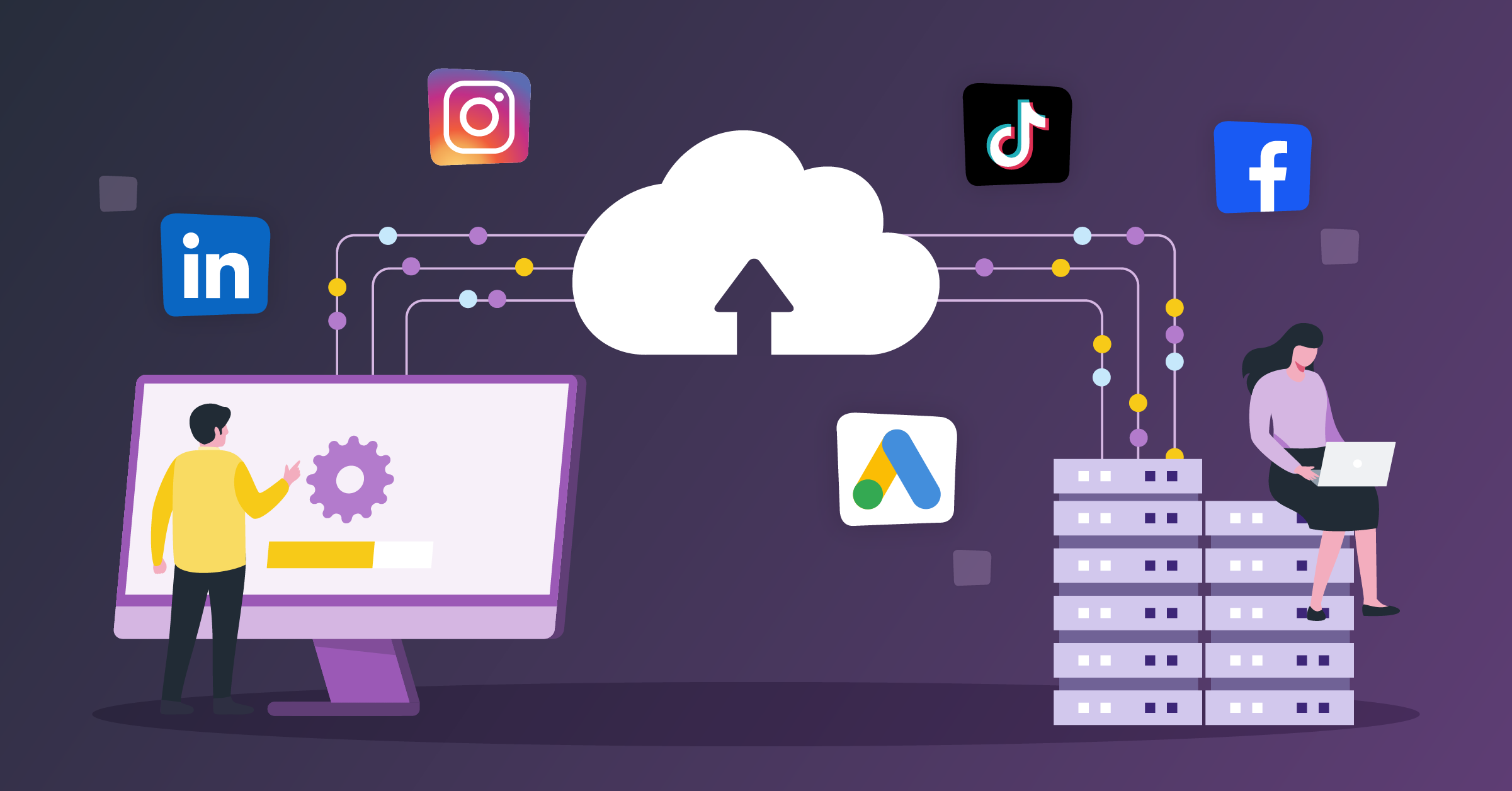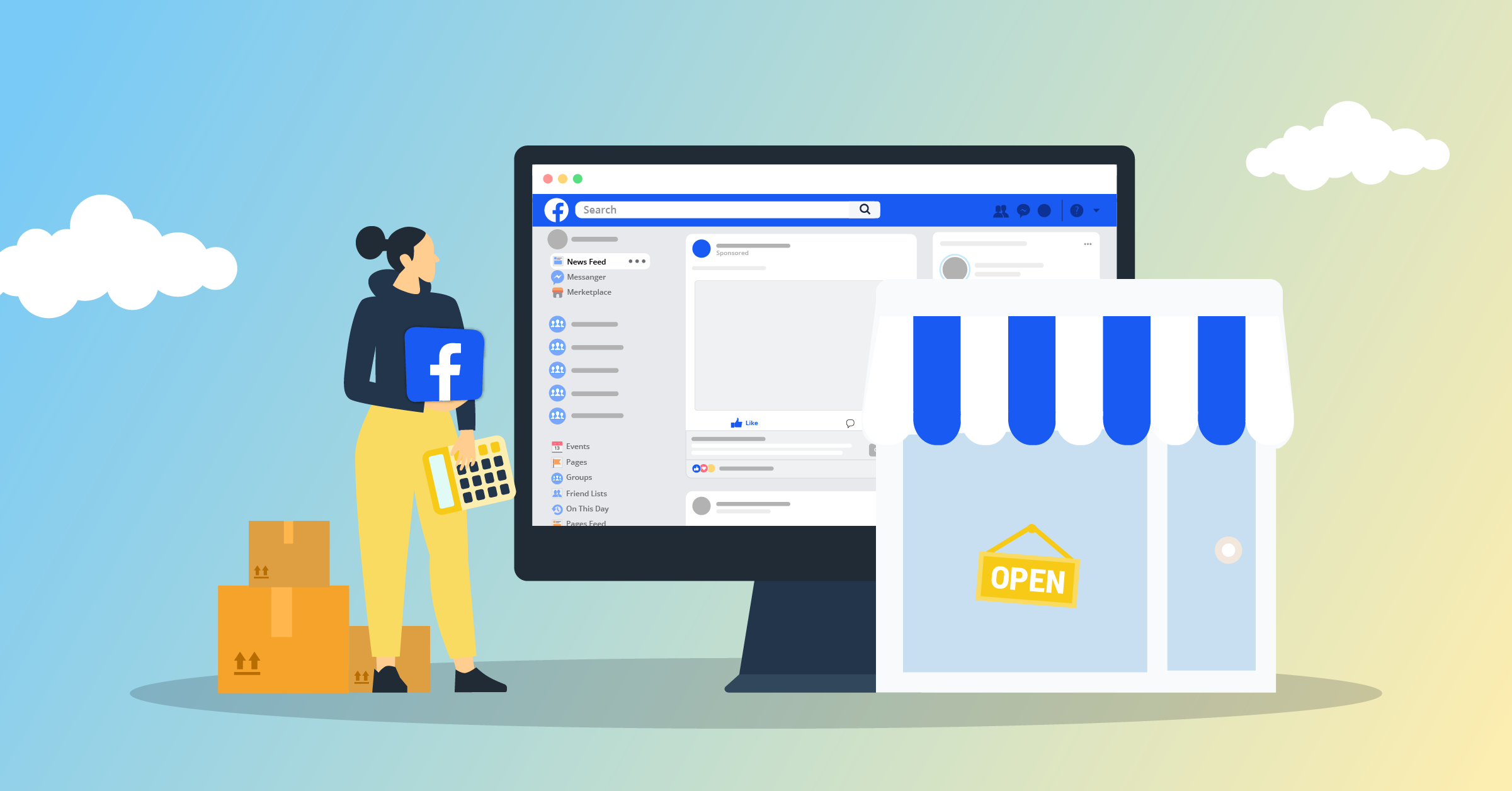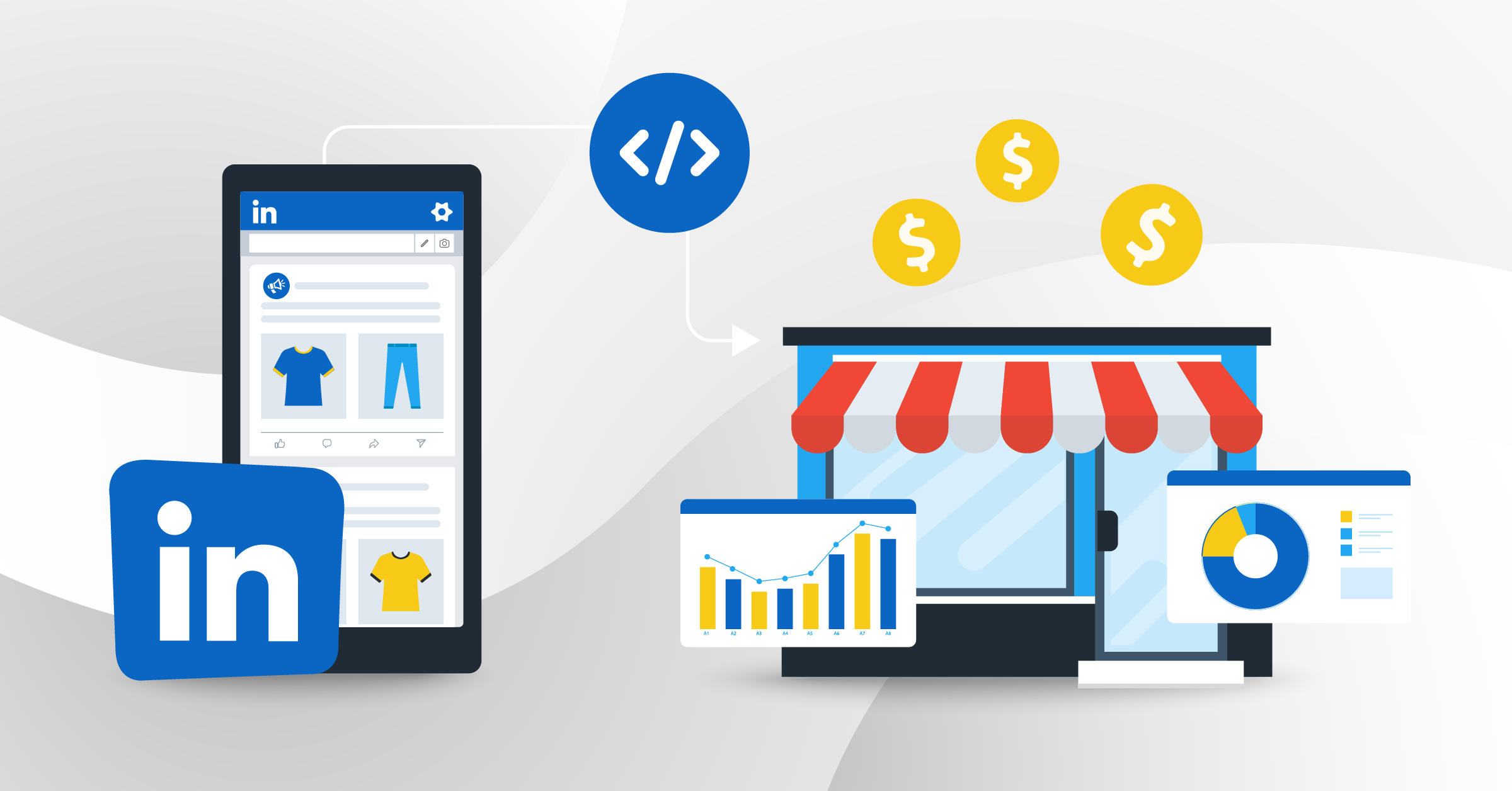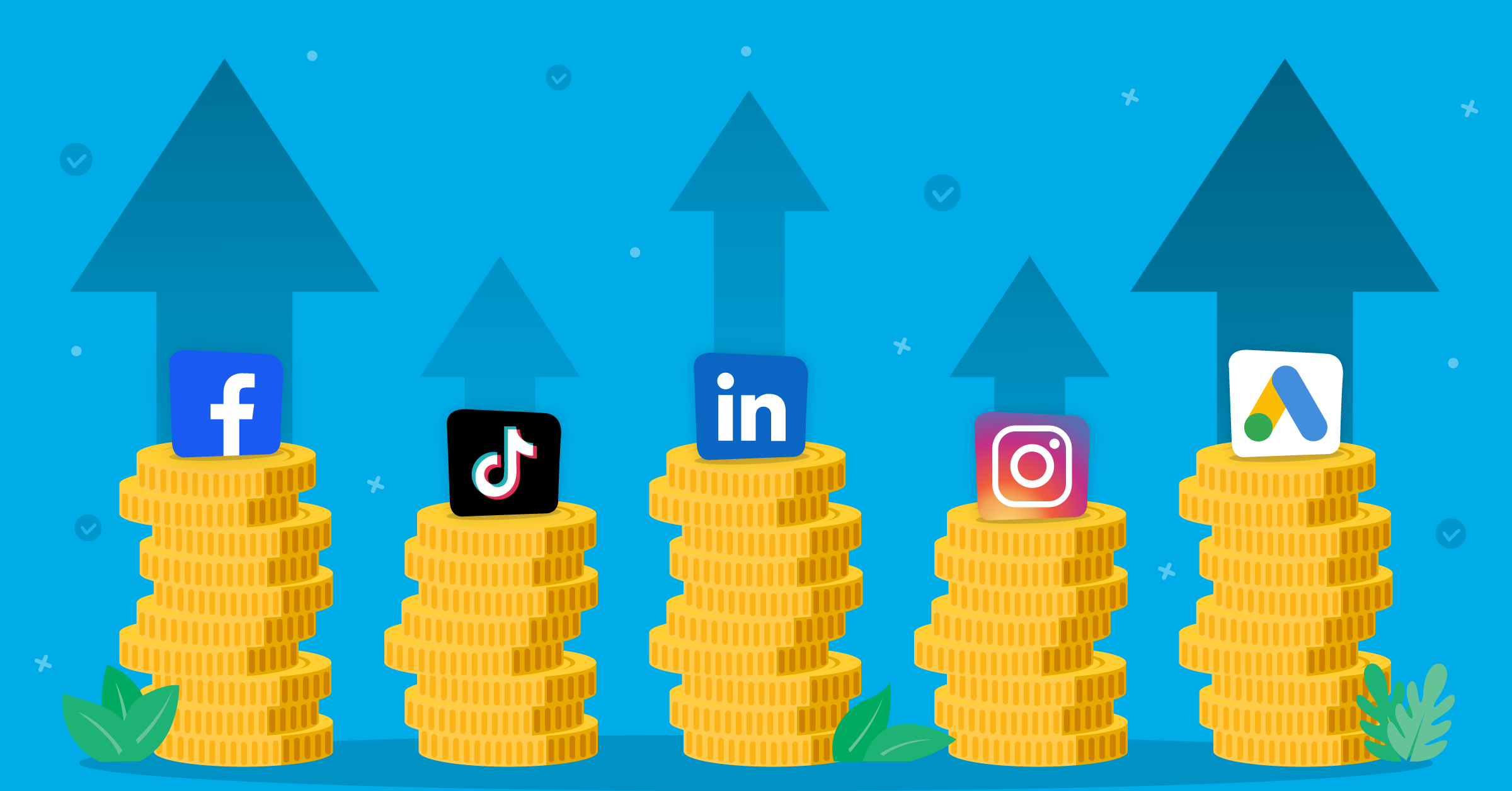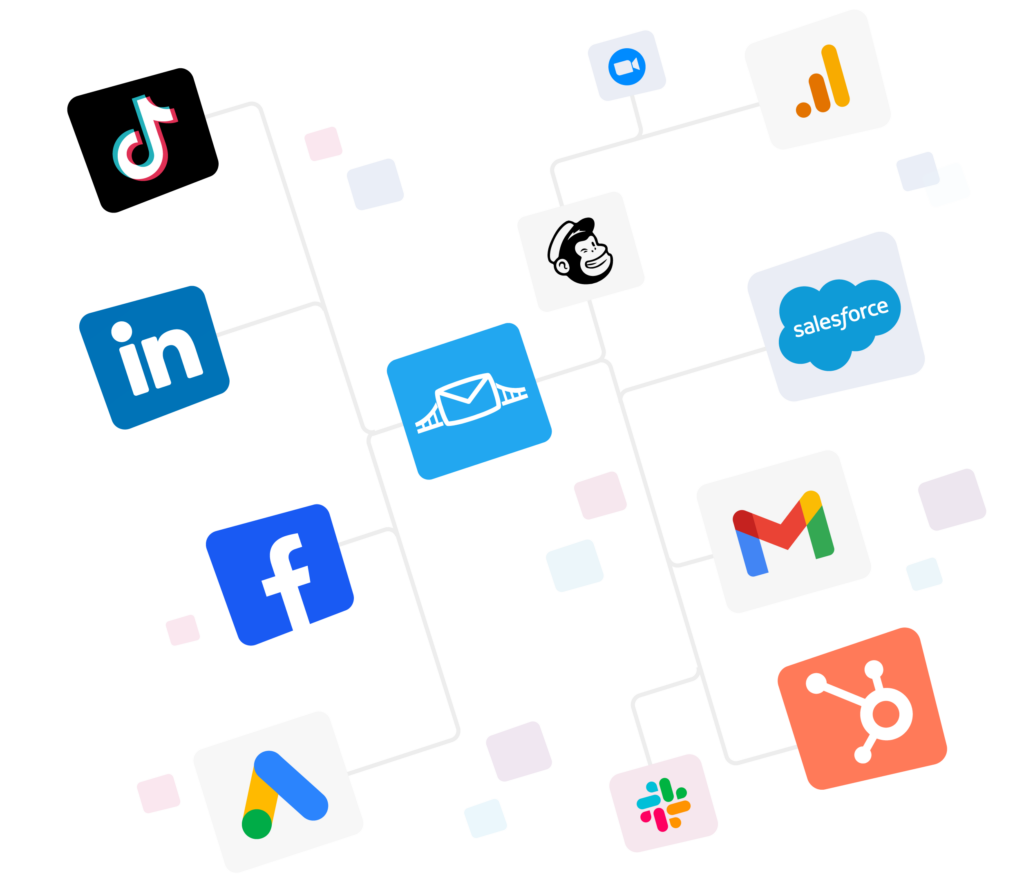
There are many integral components that make the machine that is a small business run smoothly. Various aspects comprise a single operational activity, making the breadth of tasks that require attention quite vast.
However, spending a substantial amount of time completing arduous, repetitive tasks and manually moving information between platforms is ineffective and leaves significant room for error.
- What is marketing automation
- The difference between a CRM and marketing automation
- Benefits of marketing automation for small business
- How can marketing automation aid professional services?
- Marketing automation tools for small businesses
- How to get started with marketing automation for small businesses?
- How to choose a marketing automation platform
- Start automating your small business for free
- Final thoughts
Luckily, there is a solution! Automation revolutionizes the way you approach tasks, from the mundane to the complex. By streamlining your workflows and enhancing your productivity, you can place your focus on high-priority
Throughout this article, we will discuss how marketing automation for small businesses can help you to streamline your workflows and enhance your productivity. In addition, you will discover a selection of the best automation software currently available.
What is marketing automation
Marketing automation is the replacement of manual, repetitive tasks with the organizational capabilities of software. This enables businesses to re-assign tedious activities to programmed solutions.
This way, they can allocate greater resources to strategizing, curating creative content and problem-solving. This automation can simplify and streamline workflows.
Processes like email marketing, delivery of social media content and multifunctional campaigns that span a range of channels, as well as data transferral and organization. Additionally, it can even assist in improving customer support by integrating call center support services.
The difference between a CRM and marketing automation
With similar functionalities, you may be wondering how marketing automation differs from a traditional CRM system.
Simply, these solutions serve two different purposes for businesses.
The functionality of marketing automation software is based on marketing activities. However, they are predominantly being used to manage digital campaigns, email marketing, lead tracking and landing pages.
This helps to attribute the contribution of marketing efforts to overall return on investment. In contrast, a CRM is typically used to manage the processes associated with the sales pipeline using CRM data enrichment. This includes monitoring customer data, tracking lead status and the overall management of relationships with both existing, and prospective customers.
Benefits of marketing automation for small business
So, why use marketing automation? This practice offers a variety of benefits for companies across all industries, eliminating operational issues to drive greater, more profitable outcomes.
1. Efficiency
The reduction in need for the manual completion of numerous tasks is the primary benefit of engaging in marketing automation for small businesses.
A range of activities, including social media posting, email campaign delivery and landing page management can all be performed within a singular platform. According to SalesforceⓇ, this has led to a 14.5% increase in sales productivity and 12.2% decrease in marketing overheads.
2. Reporting
The recording of lead and performance related analytics is greatly simplified by marketing automation.
Although an intimidating task when being done manually, this platform can instantly generate highly-detailed reports of numerous processes. These include campaign performance, lead engagement and search engine ranking, to name just a few.
These accurate analytics afford you the opportunity to identify areas of friction, and alter these points in order to enhance operations and achieve objectives.
3. Personalization
One of the most significant benefits of marketing automation for small business is the opportunity it presents to tailor your marketing strategy according to specific lead segments.
The segmentation capabilities of automation software, according to behavior and characteristics, allow for the delivery of personalized content to prospects across a number of channels. This may be via email, social media, or search ads.
To solidify this importance of personalization, it is worth noting that 80% of consumers are more likely to purchase from a company that provides a personalized experience.
4. Data orchestration
Using advertising platforms for small businesses is perhaps the shortest way to increase visibility and engagement. This is mostly due to features that allow the creation of highly targeted audience lists. Better targeting also translates to more efficient allocation of marketing budgets towards the most ‘interested’ audiences.
LeadsBridge allows small businesses to streamline these advertising processes through automated integrations. These data bridges seamlessly transfer data between these advertising platforms and your CRM or email marketing software.
This connection makes sure leads are nurtured as they come in, builds more accurate audience lists, optimizes advertising campaigns, and more. In addition, LeadsBridge integrations save time, while allowing you to run personalized follow-up communications. This could potentially lead to higher conversion rates and customer satisfaction.
LeadsBridge has partnered up with the top advertising platforms to provide robust integrations. Below are the top LeadsBridge integrations with Facebook, TikTok, LinkedIn and Google.
Facebook integration for small businesses
LeadsBidge allows small businesses to automatically sync their lead data from Facebook Lead Ads to their preferred CRM or email marketing tools. This integration streamlines lead management, ensuring that no potential customer falls through the cracks.
Also, Facebook Conversions API makes customer journey tracking much more effective, while Facebook Custom Audience integrations can help create laser-sharp campaigns. For even better audience targeting, Facebook Lead Conversion integrations are a must-have.
TikTok integrations for small businesses
LeadsBridge enables businesses to automate the transfer of lead information from TikTok advertising campaigns directly to their marketing stack. This ensures timely engagement with prospects and maximizes the effectiveness of their campaigns.
Conversion tracking and audience segmentation are other TikTok advertising features that LeadsBridge integrates.
LinkedIn integrations for small businesses
LeadsBridge’s integration with LinkedIn facilitates the seamless transfer of leads generated from LinkedIn Lead Gen Forms and LinkedIn Registration forms into a business’s sales or marketing tools.
In addition to more effective nurturing of professional and high-value prospects, it’s possible to automate the data sync between a business’s database and other LinkedIn ad tools. They include LinkedIn Matched Audience for more precise targeting, LinkedIn Conversion API for more effective customer tracking, and LinkedIn Events integrations for automating event-based lead generation.
Google integrations for small businesses
Google’s wide array of advertising services, including Google Ads, can be fully integrated with LeadsBridge. These data bridges facilitate the automated import of leads into a CRM or email marketing system.
These integrations ensure businesses can precisely target the interested audience using Google Customer Match, quickly respond to potential customers who have shown interest through their search and display ads, create cost-free CRMs through Google Sheets, and more.
Learn how to use Google Sheets as one of the free marketing automation tools for small businesses.
How can marketing automation aid professional services?
Now that the advantages of integrating automation in the running of your business have been established, you should consider which type is best suited to your specific set of pre-identified objectives.
Generally speaking, there are four key ways in which you can employ marketing automation to aid the running of professional services, which are as follows;
1. Reactive automation
As its title suggests, this branch of automation reacts to the engagement activity of leads, as well as their registered preferences, to determine the content they are shown.
This is a preference-based content alert where leads possess the power to determine the frequency of the communication they receive.
2. Sequence automation
This automation variation enables marketers to curate sequences of communication (or workflows) with intelligent logic, providing a seamless engagement experience.
The main advantage of this is that once marketing automation workflows have been created, you can establish new ones simply by copying the templates that already exist. This removes the necessity of starting this task from the beginning each time.
3. Action triggers
Action trigger automation revolves around eradicating manual, repetitive activities and ensuring leads are receiving the appropriate content at an optimal time.
Web download forms are a prime example of this type of marketing automation. When a lead fills out a form on your website to download material, action triggers send an automated email with the desired content attached.
In addition to this, an internal notification can be sent to the marketing team to inform them that this action has been taken.
4. Data synchronization
If your business is maximizing the capabilities of its CRM, it is critical that the associated database is viewed as the most valuable source of information. This means that ensuring the database is continuously updated is critical.
A software, such as LeadsBridge, can help to leverage data synchronization and connect your CRM with your entire marketing stack. Therefore, lead data is consistently shared across platforms in real-time, automatically.
Marketing automation tools for small businesses
With a vast selection of software to choose from, selecting the appropriate platform can be an intimidating task. That is why we have curated a list of the most popular, extensive marketing automation for small business tools currently available.
HubSpot
Founded in 2006, HubSpot is one of the best known marketing and sales softwares on the market, being used by approximately 194,000 across the globe.
The main features of this tool include;
- Lead segmentation: Segment leads into specific lists according to common traits and behaviors.
- Lead management: Track interactions with leads over time, so that sales and marketing teams can plan the best approach to acquire conversions.
- Email automation: Build automated email workflows to enhance outreach, content, and engagement with customers.
Prices vary depending on the HubSpot service you are interested in. For the Marketing Hub, you have a choice of 2 pricing plans: Professional ($792/mo), and Enterprise ($3,300/mo). They also offer more lenient plans for individuals and small businesses.
Here are a few of our most popular integrations with HubSpot.
ActiveCampaign
ActiveCampaign, founded by Jason VandeBoom in 2003, is a cloud software service that is especially suited to small and mid-sized businesses.
This software enables you to automate your daily tasks in a multitude of ways. Its features include;
- Single-view automation: This comprehensive view of all of your automated tasks allows you to spot what may need to be improved and make relevant changes, all without interrupting someone else’s workflow.
- Audience segmentation: Break down your audience into smaller segments to help you better understand them and their needs. You can then tailor the communications that go out to each segment for greater personalization and a higher engagement rate.
- Easy automation: This marketing automation software for small businesses has a drag-and-drop workflow builder that makes automating extremely fast & easy.
ActiveCampaign offers 4 paid plans, where the price of each plan shifts according to the number of contacts. This makes it one of the most popular choices of marketing automation tools for small businesses.
For a starting point of 1000 contacts, you’d pay $29/mo for the Lite plan, $49/mo for the Plus plan, $149/mo for the Professional Plan, and $259/mo for the Enterprise plan.
Below are a few of our most used integrations with ActiveCampaign.
GetResponse
GetResponse, founded over 20 years ago, offers solutions such as autoresponders, conversion funnels, landing pages, webinars, and email marketing.
Let’s take a look at its main marketing automation features.
- Email sequence automation: By automating your email sequences, this marketing automation platform for small businesses helps you increase your open and click-through rates while allowing you to save time.
- Lead scoring: Assign specific values to your leads to determine which ones are qualified prospects (more likely to make a purchase), which ones still need to be nurtured with valuable content, and which ones are unqualified.
- Customized workflow templates: If your small business has its own unique workflow, you can customize workflow templates and share them with the entire company.
GetResponse offers 3 plans: Basic ($13.12/mo), Plus ($44.28/mo), and Professional ($86.92/mo).
Here are a few of our most requested integrations with GetResponse.
Mailchimp
Established back in 2001, Mailchimp is a marketing automation platform and email service that boasts millions of customers worldwide.
Let’s take a look at the tool’s main features;
- Automated scheduling: This marketing automation software for small businesses ensures your message gets delivered to the right lead at the right time with send-time optimization and delivery by time zone.
- Data automation: Never miss a birthday, anniversary, or special milestone. You can strike when the iron it’s hot and possibly earn a sale.
- Behavioral automation: When your lead or customer reacts, you can progress your campaign with automation based on their behavioral triggers. While Mailchimp is a popular choice, especially for small businesses, many users also explore a Mailchimp alternative that better aligns with their specific goals or budget.
Mailchimp for Marketing offers 4 plans: Free, Essential ($12/mo), Standard ($18/mo), and Premium ($324/mo).
Below you can find a few of our most popular integrations with Mailchimp.
ConvertKit
ConvertKit offers digital marketing services to online creators of all variations. Its plethora of features makes it an especially valuable option of marketing automation for small businesses and startups.
Here’s a closer look at those features;
- Email automation: Save time with automated funnels, email scheduling, targeted content, and more.
- Automated segmentation: Easily categorize buckets of potential prospects by segmenting your leads through automation.
ConvertKit offers 3 plans: Free, Creatore ($25/mo), and Creator Pro ($50/mo), where each plan adjusts in price according to the increasing number of email subscribers.
Here are a couple of our most popular integrations with ConvertKit.
Keap

Keap was founded in 2001 and has now evolved into a full-range CRM, sales, and marketing automation platform. It’s mostly designed for small businesses and helps streamline customer interactions, sales processes, and marketing campaigns. The top features of this all-in-one platform include:
- Robust CRM integration: Keap’s CRM allows businesses to maintain detailed customer records, including contact information, communication history, and purchase records, enabling personalized interactions.
- Enabling sales automation: It lets you put repetitive sales tasks, follow-ups, and lead nurturing processes on autopilot to close deals faster and more efficiently.
- Unique marketing tools: It offers tools for email marketing, landing pages, and campaign builders used to create and automate targeted marketing campaigns.
Keap offers various pricing plans to accommodate the needs and growth stages of different businesses. Keap’s Pro Plan is aimed at smaller teams at $159 per month with up to 1500 contacts, email marketing, CRM features, and more for 2 users (with additional users costing $29 each). The Max Plan, as well as the Ultimate Plan at $229 per month each, catering to growing teams by adding advanced ecommerce tools and enhanced reporting.
Sendinblue (Brevo)
Sendinblue is a digital marketing platform that can be used as a free marketing automation tool for small businesses. The platform mostly offers SMS campaigns and marketing automation. It’s best suited for small to medium-sized businesses looking to engage their customers through multiple channels. Its top features include:
- Creating elegant email campaigns: You can use it to design, send, and track email campaigns. Sendinblue also offers a user-friendly interface and advanced segmentation options.
- Intuitive SMS marketing: It helps you reach customers directly on their mobile devices with personalized SMS messages, which is a perfect option for timely promotions or updates.
Easy marketing automation: It facilitates automating your marketing workflows to trigger emails or SMS messages based on user behavior.
Sendinblue offers a unique pricing model based on the volume of emails sent, including a free tier with a daily sending limit of 300. Other plans include $29/mo for the Lite plan, $49/mo for the Plus plan, $149/mo for the Professional Plan, and $259/mo for the Enterprise plan.
Klaviyo
Klaviyo is another powerful email marketing and automation platform that is mostly geared toward ecommerce businesses. Retailers use it to deliver personalized experiences to their customers through targeted email and SMS marketing campaigns.
Some of the notable Klaviyo’s features are:
- A wide range of ecommerce integrations: It seamlessly integrates with popular ecommerce platforms for better customer purchase behavior tracking and targeted marketing campaigns.
- Enables both email and SMS campaigns: It lets you create, send, and analyze the performance of email and SMS campaigns from a single platform.
- Makes room for automated workflows: You can set up automated email and SMS sequences for cart abandonment, welcome series, post-purchase follow-ups, and more.
Klaviyo’s pricing is based on the number of contacts in your database, with free email sending up to 250 contacts. The platform offers tiered pricing beyond that based on the number of contacts and features.
How to get started with marketing automation for small businesses?
Beginning any new process within your business can be a daunting experience, especially if you are unsure of where to start.
Taking this into consideration, we have compiled a list of marketing automation for small business ideas that you can easily implement to kickstart the streamlining of your workflows. These include;
1. Sync leads to your CRM
At least once, you may have found yourself in a position where you forgot to add a lead to your CRM system after they have reached out, resulting in a loss of interest that cannot be reclaimed.
If this continuously happens, lead generation campaigns can be detrimentally affected and a great number of business opportunities can be missed.
With automation software, you can directly sync new leads to your CRM, be it from web forms, advertising platforms or subscription lists. By doing so, you will possess the ability to interact with leads immediately and secure conversion opportunities with a variety of automatic nurturing tactics.
2. Schedule social media posts
There is no denying that delivering engaging social media content is a multifaceted, time-consuming process.
Aside from ideation, creation and design, planning a daily publication schedule specific to each social platform can be tedious.
By using automation for the delivery of your social media marketing, you can bulk upload your content, schedule it according to your publishing plan and set the delivery on autopilot.
3. Nurture leads with an email campaign
Not every lead is prepared to commit to purchase right away. In fact, it has become increasingly important for the consumer to gather information about a product, service or business before forming a decision.
Therefore, lead nurturing is an imperative aspect of acquiring conversion. After all, nurtured prospects tend to make 47% larger purchases than those who are not.
As one of the preferred channels for facilitating lead nurturing, establishing an automated email campaign is one of the most effective marketing automation ideas that you can implement.
Using available lead data, consider delivering automated, content-rich emails that offer valuable information to the customer, as well as including persuasive and clear call-to-action buttons to direct them towards the desired next step.
4. Customize communication
Consumers have a deep appreciation for personalized marketing communications, as it enhances their buying experience and shortens the sales cycle. According to Slideshare, 80% of customers are more likely to purchase products from a company that offers a tailored experience.
Therefore, sending relevant product recommendations to leads according to their interest and previous interactions, targeting them with ads specific to their needs and addressing their points are factors of marketing automation for small business that should not be overlooked.
Building custom audiences using lists within your CRM can help to effectively target ads to specific segments. LeadsBridge offers a wide range of audience targeting integrations that you can use to reach qualified leads and drive conversions, such as;
If you’d like to look for an integration with TikTok Custom Audiences, you can do so by typing in your desired source. We are currently working on integrating with TikTok Custom Audiences and will release the integration soon. Join the waiting list to make sure you don’t miss out!
5. Onboard new customers
Onboard new customers can be exhausting. Oftentimes, it involves delivering a personalized demo, sending relevant resources and ensuring facilitating a smooth adoption of your product or services.
Instead of manually running each new client through your onboarding process, you can employ automation to create email workflows that steadily share all the relevant information a customer may need.
Email campaigns that “drip” out relevant information at the right time have 80% higher open rates, in addition to 3x more click-through rates than regular emails.
6. Respond to repetitive questions
Customer support is an integral facet of any successful business, particularly those that enjoy the repeat custom of satisfied customers.
However, there is no denying that offering comprehensive support is a time-consuming process. Generally speaking, a variety of the same questions and queries will be raised by prospects.
Using a tool to trigger predefined responses to frequently asked questions and queries can be a revolutionary factor of marketing automation for small businesses in terms of time-saving and repetition of tasks.
A greater rate of customer satisfaction can be achieved by this, as they can immediately receive the information they need without having frustratingly wait for a support agent to contact them.
7. Get feedback and reviews
As previously mentioned, reviews are keys to fostering trust and driving sales. These are essential in instilling a potential buyer’s confidence in your business and act as social proof of
your ability to create a satisfied clientele.
With marketing automation software, you can establish a string of automated customer review email requests to be delivered as soon as a lead has made a purchase. These results can then be further integrated into key touch points throughout the buying journey, such as on your website, product pages, and social content.
8. Simplify team collaboration
Managing a team is one of the most challenging aspects of running a business. Between files getting lost in endless email threads and the constant back-and-forth to get sign-off, minor operations can become incredibly time-consuming.
Making use of a team collaboration tool that embraces marketing automation for small businesses, including sending regular updates to team members regarding high-priority tasks, can go a long way in enhancing productivity and alleviating major stressors.
As Chad Otar stated in Forbes magazine, “The effect automation produces on employee morale has a chain reaction, which can improve the culture at a small business.”
9. Invoicing and cash flow
To generate revenue, you need to send invoices – as simple as that.
However, manually creating invoices, cross-checking them for mistakes and sending them out can take almost an entire day. Marketing automation software offers an invoicing tool that sends correct invoices to clients, as well as follow-ups and late-payment notices.
This eliminates the need to send manual payment reminders and ensures you never miss an invoice (or a payment) again. Also, you can leverage our Invoice template for Microsoft Word and choose from various professional-looking templates to streamline your invoicing process.
How to choose a marketing automation platform
1. Cost
Undoubtedly, the biggest factor that you need to consider is the cost of the platform you are buying. It is worth seriously accessing your budget capability for software spending before committing to a purchase.
You should also be aware of the common pitfalls when selecting a platform, including hidden fees for additional features or customer support or tools that charge per number of contacts and/or emails you send.
An ideal solution doesn’t have any hidden costs and lets you know if you will be charged anything extra for any supplementary/add-on features.
2. Features
When it comes to choosing software you need to be as picky as possible and select the solution that has the richest set of features.
Some of the features that you can’t do without include email marketing support, contact management features, social media automation, a customizable dashboard and comprehensive analytics reporting.
You will need these features if you intend to gain any value whatsoever from automation.
3. Company size
If you are operating on a small scale and don’t expect to acquire more than a thousand leads a month, then there is no need to purchase a huge subscription that allows you to manage ten thousand leads per month.
As well as this, your marketing software should be capable of growing your business.
Start automating your small business for free
As a small business, when it comes to automating your processes, you can start small and steadily to expand over time. At LeadsBridge, we offer the perfect plan for every stage of your development.
To begin, our free plan allows you to connect all of the top advertising platforms, including Meta platforms, Google, YouTube, LinkedIn, and TikTok, with your favorite marketing tools, and move leads across platforms in real time, for free.
The free-forever plan includes one running bridge and allows you to move 50 leads per month. What does this mean? It means that inside your LeadsBridge platform you can potentially have more than one bridge, but you can only have one bridge up and running at a time. If you’d like to learn more about the benefits of our Free plan, you can check out this article from our blog.
Final thoughts
When you consider that 77% of companies that use marketing automation see an increase in conversions and that marketing automation for small businesses reduces marketing overheads by 12.2%, it becomes a no-brainer.
If you are not already automating repetitive manual tasks that take time away from bigger, better things you could be doing, now’s the time to start.
Use these marketing automation ideas to get started and find the right business automation software for you and your needs. Discover the full range of available integrations for marketing automation.







































